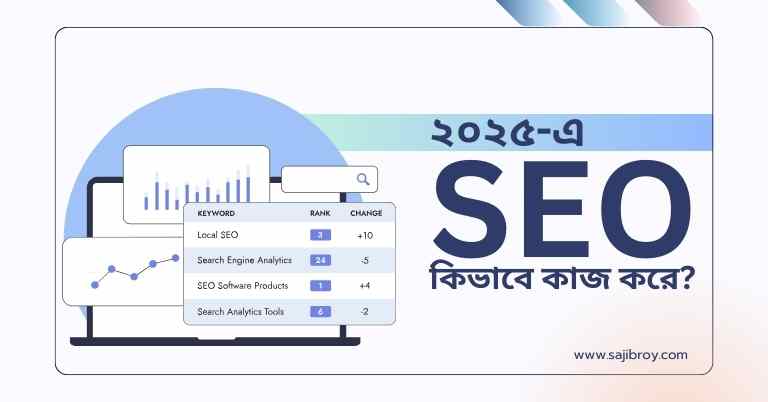For beginners, here are some concise and effective link-building tips: Focus on creating high-quality content and optimizing your website, reach out to relevant websites for guest posting opportunities, engage with online communities to build relationships and gain backlinks, and utilize social media platforms to promote your content and attract links. With these tips, you can start building a strong foundation for your website’s SEO performance and organic traffic growth.
Link building is an essential aspect of search engine optimization (SEO) that involves acquiring quality backlinks from other websites. The more reputable websites that link to your site, the higher your chances of ranking well in search engine results pages (SERPs).
However, for beginners, understanding and practicing effective link building strategies can be a daunting task. That’s why we have compiled a list of valuable tips that will help beginners like you navigate the world of link building and lay a solid groundwork for your website’s online recognition and success. You will discover some beginner-friendly link-building tips that will boost your website’s visibility and authority. Let’s get started!
Let's See the Topic Overview
The Importance Of Link Building
Why link building is essential for website ranking
Link building is a critical aspect of any successful SEO strategy. It involves acquiring high-quality backlinks from other websites to your own site. These backlinks act as votes of confidence, indicating to search engines that your website is credible and trustworthy.
When search engines see that your site has numerous authoritative websites linking to it, they view your website as valuable and relevant. As a result, your website’s ranking in search engine results pages (SERPs) can improve significantly.
How search engines consider links as a ranking factor
Search engines, like Google, consider links as one of the most crucial ranking factors. They use complex algorithms to analyze the quality and quantity of backlinks to a website.
When search engines evaluate links, they take into account various factors, including:
| Factors | Description |
|---|---|
| Relevance | Search engines favor links from websites related to your industry or niche. |
| Authority | Links from authoritative websites carry more weight and are more impactful in improving your website’s ranking. |
| Anchor text | The text used in the link should be relevant and descriptive of the content on your website. |
| Diversity | A diverse range of backlinks from different sources helps establish your website’s credibility. |
By understanding how search engines consider links, you can strategically build a strong backlink profile that positively influences your website’s ranking.
The benefits of quality backlinks
Quality backlinks offer numerous benefits to your website. These benefits include:
- Improved search engine rankings: As mentioned before, quality backlinks can significantly improve your website’s ranking in search engine results pages.
- Increased organic traffic: When your website appears higher in search results, it is more likely to attract clicks and organic traffic.
- Enhanced website authority: Backlinks from authoritative websites help establish your website as a credible and trustworthy source of information.
- Greater exposure and visibility: When other websites link to your content, it increases your chances of reaching a wider audience and gaining more visibility.
- Stronger brand reputation: Backlinks can help build and reinforce your brand reputation, as they indicate that other websites value and endorse your content.
It is important to note that not all backlinks are created equal. Quality backlinks are those that come from reputable and relevant websites. Building a strong portfolio of quality backlinks should be a priority in your link building strategy.
Finding High-Quality Websites For Link Building
When it comes to link building, targeting high-quality websites is essential for gaining valuable backlinks and improving your search engine rankings. In this section, we will explore some effective strategies for finding relevant and authoritative websites in your niche. By utilizing these tips, you can ensure that your link building efforts are focused on websites that can provide real value to your SEO strategy.
Researching Relevant Websites in your Niche
The first step in finding high-quality websites for link building is to conduct thorough research within your niche. This involves identifying websites that are relevant to your industry, products, or services. By targeting websites that have similar content to yours, you ensure that the backlinks you acquire are from relevant sources.
Here are a few strategies you can use to research relevant websites:
- Utilize search engines: Start by conducting searches on search engines like Google or Bing using relevant keywords. Look at the top-ranking websites in the search results, as they are likely to be authoritative within your niche.
- Explore social media platforms: Social media platforms like Facebook, Twitter, and LinkedIn can be valuable sources for discovering websites in your industry. Join relevant online communities or groups and interact with influencers and experts.
- Monitor competitor backlinks: Study the backlinks of your competitors to identify websites that have already linked to similar businesses or content. Tools like Ahrefs or Moz can help you conduct a backlink analysis of your competitors.
- Seek referrals from industry experts: Connect with influencers and experts in your niche and ask them for recommendations on high-quality websites. They may be able to suggest authoritative websites that they have personally used or come across.
Strategies for Identifying Authoritative Websites
Once you have generated a list of potential websites, the next step is to identify which of these are authoritative. High domain authority and trustworthiness are key factors to consider when assessing the quality of a website for link building purposes.
Consider the following strategies when determining the authority of a website:
- Domain authority and page authority: Tools like Moz’s Domain Authority and Page Authority can provide you with metrics that measure the strength and credibility of a website. Focus on websites with higher scores to ensure quality backlinks.
- Content quality and relevance: Assess the quality and relevance of the content published on the website. Look for well-researched articles, comprehensive guides, and up-to-date information. Avoid websites with thin, irrelevant, or spammy content.
- Social media presence and engagement: Check the website’s social media presence and engagement. Look for websites that have an active following and regular engagement with their audience. This indicates credibility and authority within the industry.
- Backlink profile: Analyze the backlink profile of the website to determine the quality of its own backlinks. Avoid websites with a spammy or low-quality backlink profile as they may have the potential to harm your SEO efforts.
Utilizing Tools for Analyzing Website Metrics
To analyze the metrics and performance of potential websites, you can make use of various tools available in the market. These tools provide in-depth insights into key metrics that indicate the quality and authority of a website.
Here are some popular tools you can use:
| Tool Name | Description |
|---|---|
| Ahrefs | A powerful SEO tool that allows you to analyze backlinks, organic traffic, and other important metrics of websites in your niche. |
| Moz | Provides metrics like Domain Authority, Page Authority, and spam score to help you identify authoritative websites. |
| Semrush | Offers a wide range of SEO analytics, including organic search traffic, keyword rankings, and backlink analysis. |
| Google Analytics | Provides valuable insights into website traffic, user behavior, and engagement metrics. |
By utilizing these tools, you can gain a deeper understanding of the website’s performance and make informed decisions on whether to pursue link building opportunities with them.
In conclusion, finding high-quality websites for link building requires thorough research, strategic identification of authority, and the use of comprehensive analysis tools. With these strategies in place, you can enhance your link building efforts and boost your search engine rankings.
Creating Link-Worthy Content
Understanding the type of content that attracts links
One of the key factors in successful link building is creating content that naturally attracts links from other websites. To do this, it’s crucial to understand the type of content that appeals to others and encourages them to link back to your site. By focusing on high-quality, relevant, and informative content, you can increase your chances of earning valuable backlinks.
Tips for writing informative and engaging articles
When it comes to writing link-worthy content, there are a few tips that can help you create informative and engaging articles that others will want to link to. First and foremost, it’s essential to conduct thorough research and gather accurate information. Back up your claims with relevant facts, statistics, and credible sources. This not only adds credibility to your content but also increases the likelihood of other websites citing your work.
Moreover, organizing your article in a logical and easy-to-follow structure enhances readability. Break down the information into clear sections with subheadings that catch the reader’s attention. Utilize bullet points, ordered or unordered lists, or even tables to present complex data or comparisons in a visually appealing way. Remember, the easier it is for readers to understand and absorb your content, the more likely they are to share it with others.
Incorporating visuals and multimedia to enhance content quality
Visual content, such as images, videos, and infographics, plays a vital role in enhancing the quality of your content. Incorporating visual elements into your articles not only makes them more visually appealing but also helps to break up long blocks of text and keep readers engaged. Visuals grab attention, convey information effectively, and make your content more shareable.
When adding visuals, ensure that they are relevant, high-quality, and properly optimized for SEO. Use alt tags and descriptive captions to provide additional context and improve accessibility. Additionally, consider embedding videos, slideshows, or interactive elements to enhance user experience and increase the chances of others linking to your content.
Creating link-worthy content is an essential component of a successful link building strategy. By understanding the type of content that attracts links, writing informative and engaging articles, and incorporating visuals and multimedia, you can create content that not only earns backlinks but also provides value to your audience. Remember, the key is to offer unique and relevant content that others will naturally want to share and link to.
Outreach Strategies For Link Building
If you want to succeed in link building, it’s crucial to master effective outreach strategies. Outreach is the process of reaching out to website owners and bloggers to establish mutually beneficial relationships and secure valuable backlinks. Crafting personalized outreach emails, building relationships, and contributing guest posts are three essential techniques that can help you effectively drive link building efforts.
Crafting Personalized Outreach Emails
When it comes to outreach, one of the most important aspects is creating personalized emails. The more tailored your email is to the recipient, the higher the chances of getting a positive response. Here are some tips to help you craft effective outreach emails:
- Research the website owner or blogger you are reaching out to. Show genuine interest in their content and mention specific articles or posts that you found valuable.
- Clearly explain why you believe your content or website would be a valuable addition to theirs. Highlight the potential benefits they would gain by linking to your website.
- Keep your email concise and to the point. Avoid lengthy paragraphs or unnecessary information that might overwhelm the reader.
- Personalize the subject line to grab the attention of the recipient. A catchy and relevant subject line can significantly improve your open rates.
- Remember to proofread your email for any grammatical or spelling errors. A well-written and error-free email reflects professionalism and increases your chances of success.
Building Relationships with Website Owners and Bloggers
Building genuine relationships is another crucial aspect of successful outreach for link building. Building relationships with website owners and bloggers can help you establish trust, credibility, and increase your chances of getting quality backlinks. Here are a few tips to build meaningful relationships:
- Engage with their content by leaving thoughtful comments on their blog posts or articles. Start a conversation and show your genuine interest in their work.
- Share their content on your social media platforms and give them proper credit. This helps them reach a larger audience and strengthens your relationship.
- Collaborate on projects or provide value to them in some way before asking for a backlink. Building reciprocity creates a win-win situation.
- Stay in touch by regularly checking in, sharing updates, or asking for their opinions on relevant topics. Nurture the relationship over time.
Contributing Guest Posts to Reputable Websites
Guest posting is an effective strategy for building high-quality backlinks and gaining exposure to a new audience. When contributing guest posts, it’s important to target reputable websites in your niche. Here are some guidelines for successful guest posting:
- Research and identify reputable websites that align with your niche and have a strong online presence. Look for websites that actively publish guest posts.
- Read the guidelines provided by the website for guest post submissions. Follow their guidelines and ensure your content meets their standards.
- Focus on creating high-quality, informative, and engaging content that provides value to the readers. Avoid overly promotional content that may be rejected.
- Include relevant and contextual backlinks to your own website within the guest post. This helps drive traffic and boosts your SEO efforts.
- Promote your guest post through your social media channels and encourage others to share it. This helps increase the visibility and reach of your content.
Implementing these outreach strategies will not only help you build valuable backlinks but also establish meaningful relationships within your industry. Remember, patience and persistence are key when it comes to link building. Continuously refine your outreach techniques, adapt to the changing landscape, and always strive for mutually beneficial collaborations.
Effective Link Building Techniques
Link building is an essential aspect of SEO that can significantly impact your website’s search engine rankings and organic traffic. While there are various link building techniques available, it’s crucial to focus on the most effective ones to maximize your efforts. In this article, we’ll discuss three proven strategies for effective link building that can help beginners establish a solid foundation for their SEO campaigns.
Utilizing Social Media Platforms for Link Building
Social media platforms offer tremendous opportunities for link building and boosting your website’s visibility. Here are a few ways you can leverage social media to build quality links:
- Create compelling and shareable content that encourages users to link back to your website.
- Engage with your audience by actively participating in conversations and discussions related to your industry.
- Share your content on relevant social media groups and communities to attract attention and increase the chances of getting backlinks.
- Collaborate with influential social media users and ask them to share your content, thereby increasing your reach and generating more links.
- Consider running social media contests or giveaways that require participants to link back to your website.
Participating in Online Communities and Forums
Online communities and forums provide an ideal platform to establish your expertise, connect with industry professionals, and build backlinks. Here’s how you can effectively utilize online communities and forums for link building:
- Identify high-authority forums and communities that are relevant to your industry and have active user engagement.
- Actively participate in discussions by providing valuable insights, answering questions, and solving problems.
- Add a link to your website in your forum signature or bio, ensuring it complies with the community’s guidelines.
- Contribute guest posts or articles to authoritative forums or community blogs with a link back to your website.
- Build relationships with influential members and collaborate on content projects that can generate backlinks.
Building Relationships with Influencers in Your Industry
Building relationships with influencers in your industry can significantly enhance your link building efforts. Here are some effective strategies to connect with influencers:
- Identify influencers within your niche by researching popular blogs, social media accounts, and industry events.
- Engage with influencers by commenting on their blog posts, sharing their content, and mentioning them in your own articles.
- Reach out to influencers with personalized messages, expressing your admiration for their work and offering collaboration opportunities.
- Offer to contribute guest posts or interviews to the influencers’ platforms, ensuring you include links back to your website.
- Attend industry conferences and events to network with influencers and establish meaningful connections.
By implementing these effective link building techniques, beginners can gradually establish a strong online presence, improve their search engine rankings, and drive valuable organic traffic to their websites. Remember, building high-quality links takes time and effort, so stay consistent and focused on creating valuable content that naturally attracts backlinks.
Avoiding Common Link Building Pitfalls
Link building is an essential aspect of any SEO strategy, as it helps search engines understand the credibility and authority of your website. However, it is important to avoid certain pitfalls that could do more harm than good to your website’s search rankings. In this section, we will discuss three common link building pitfalls that beginners should be aware of and how to avoid them.
Recognizing black hat link building techniques to avoid
Black hat link building refers to unethical practices aimed at manipulating search engine algorithms to gain higher rankings. While these techniques may provide short-term benefits, they can have severe consequences in the long run. It is crucial to recognize and avoid black hat link building techniques to maintain a healthy and sustainable online presence. Here are some examples of black hat tactics:
- Keyword stuffing: Repeating keywords excessively in anchor texts or content.
- Cloaking: Presenting different versions of a webpage to users and search engines.
- Link farms: Participating in networks of low-quality websites that exist solely for building links.
- Hidden links: Placing links within the webpage’s code that are invisible to users.
By staying away from these practices, you can build a strong foundation for your website’s link profile and avoid penalties from search engines.
Understanding the risks associated with paid links
While paid links might seem like a shortcut to obtaining quality backlinks, it is important to understand the risks involved. Search engines, like Google, have strict guidelines on natural link building and can easily detect paid links. If detected, your website could face severe penalties, including a drop in search rankings or even complete removal from search results. Here are the risks associated with paid links:
- Penalties: Paid links violate search engine guidelines, putting your website at risk of penalties.
- Lack of control: You have no control over the quality or relevance of the websites linking to you.
- Unnatural link patterns: A sudden increase in paid links can raise red flags, signaling manipulation.
Instead of relying on paid links, focus on creating valuable content and building relationships with influencers and industry experts. This way, you can earn backlinks naturally and improve your website’s authority in a sustainable manner.
Ensuring ethical and sustainable link building practices
An ethical and sustainable link building strategy is crucial for long-term success. By following these best practices, you can build a strong link profile while staying in line with search engine guidelines:
- Create valuable content: Produce high-quality, informative content that naturally attracts backlinks from other websites.
- Build relationships: Connect with influencers and industry experts, fostering mutually beneficial relationships that can result in natural backlinks.
- Guest blogging: Contribute guest posts to relevant and reputable websites, including a link back to your own site.
- Social media engagement: Share your content on social media platforms, encouraging others to link back to your website.
- Monitor your link profile: Regularly analyze your link profile, identifying and disavowing any low-quality or irrelevant links.
By adhering to ethical and sustainable link building practices, you can improve your website’s visibility, credibility, and organic rankings, driving long-term success in the digital landscape.
Monitoring And Analyzing Your Backlinks
In the world of SEO, building high-quality backlinks is crucial for improving your website’s visibility and rankings. However, it is not enough to simply acquire backlinks. To ensure their effectiveness and address any potential issues, monitoring and analyzing your backlinks is essential.
Utilizing tools to track and analyze backlinks
There are various tools available that can help you track and analyze your backlinks. These tools provide valuable insights into your backlink profile, including the number of backlinks, the domains they come from, and their quality. By utilizing these tools, you can gain a better understanding of how your backlink profile is performing.
Some popular backlink analysis tools include:
- Ahrefs: A comprehensive SEO tool that allows you to track and analyze your backlinks. It provides detailed information on the number of backlinks, referring domains, and their quality.
- Moz: Another powerful tool that offers valuable insights into your backlink profile. It provides metrics such as Domain Authority, Page Authority, and Spam Score to assess the quality of your backlinks.
- SEMrush: Known for its comprehensive keyword research capabilities, SEMrush also offers backlink analysis tools. It allows you to track your backlinks and assess their value.
Monitoring the quality and relevance of your backlink profile
Monitoring the quality and relevance of your backlink profile is crucial for maintaining a strong SEO strategy. Not all backlinks are created equal, and it’s important to identify any potentially harmful or low-quality links that may be negatively affecting your website’s performance. Here are a few things to consider when monitoring the quality and relevance of your backlinks:
- Assess the authority of the domains linking to your website. High-authority domains are more valuable and can positively impact your rankings.
- Check the relevancy of the websites linking to you. Links from websites in a related industry or niche are often more valuable than unrelated ones.
- Analyze the anchor text used in backlinks. Diversified and natural anchor text is preferable to keyword-stuffed or spammy anchor text.
- Keep an eye on the overall health of your backlink profile. Identify and disavow any toxic or spammy backlinks that may harm your website’s reputation.
Making adjustments to your link building strategy based on analysis
Regularly analyzing your backlink profile allows you to make data-driven adjustments to your link building strategy. By identifying trends and patterns, you can optimize your efforts to maximize results. Here’s how you can make effective adjustments:
- Identify the types of content that attract high-quality backlinks. Focus on creating more of this content to naturally attract valuable links.
- Explore new link building opportunities. Research websites and industries that are relevant to your business and reach out for potential collaborations or guest posting opportunities.
- Continuously monitor the performance of your backlinks. Track the impact they have on your website’s rankings and make adjustments as needed.
- Stay up to date with the latest SEO trends and algorithms. Regularly update your link building strategy to align with best practices and avoid any potential penalties.
By consistently monitoring and analyzing your backlinks, you can ensure that your link building efforts are effective and contribute to the growth of your website’s organic search visibility. Use the mentioned tools, keep an eye on quality and relevance, and make data-driven adjustments to your strategy for long-term success in the world of SEO.
Conclusion
Link building is an essential aspect of SEO that beginners should focus on. By following the tips mentioned in this blog post, you can improve your website’s search engine rankings and increase organic traffic. Remember to prioritize high-quality backlinks from reputable websites, engage in guest posting to build authority, utilize social media platforms for link promotion, and regularly monitor and update your link profile.
While link building may take time and effort, the long-term benefits make it worthwhile. By implementing these strategies, you can establish a strong online presence, gain credibility, and ultimately drive more targeted traffic to your website. So, don’t underestimate the power of effective link building and start incorporating these tips into your SEO strategy today.












